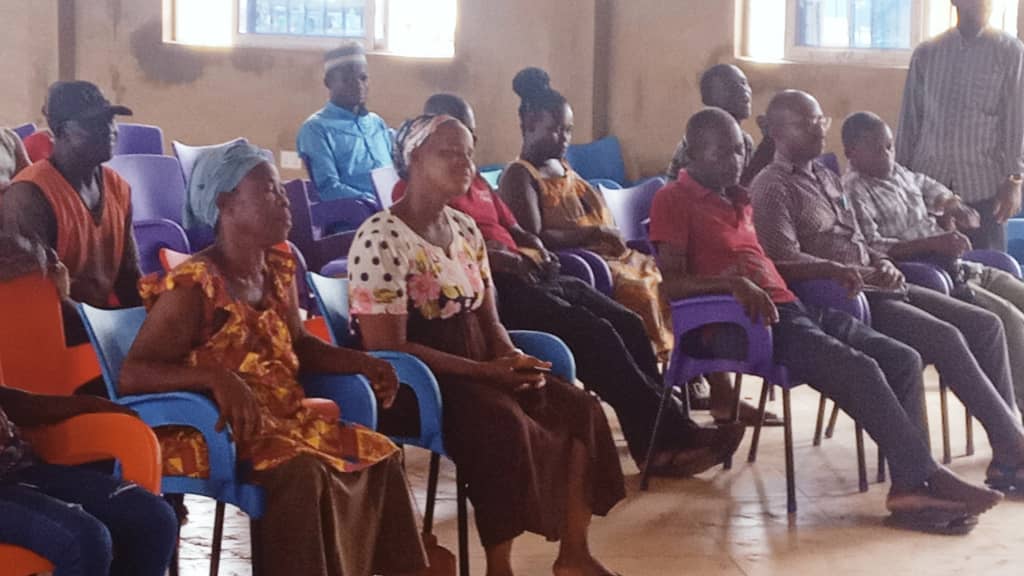By Yussif Ibrahim
Drobonso (Ash), July 8, GNA – The Sekyere Afram Plains District of the Ashanti Region is deprived of improved toilet facilities with about 99.5 per cent of households lacking that, according to the Ghana Statistical Service multidimensional poverty report.
Open defecation is, therefore, a common practice across the district, which also came last among the 43 districts in the region in terms of the percentage of the population living in multidimensional poor households.
These came to light at a forum, organized by Vision for Action Foundation, in collaboration with the District Environmental Health Department, to sensitise community members at Drobonso on the effects of open defecation.
The forum formed part of the implementation of the “I am aware” initiative, which seeks to strengthen the demand for accountability and responsiveness in Ghana by improving citizens’ awareness of public service delivery.
The Ghana Center for Democratic Development (CDD-Ghana) is implementing it through its partners at the national and district levels with funding from the William and Flora Hewlett Foundation.
According to a survey conducted by the Environmental Health Department, which was presented during the forum, open defecation is prevalent in Drobonso, the district capital, because most households have no toilet facilities.

A total of 199 out of 250 households surveyed had lacked those facilities with the inhabitants admitting that they engage in open defecation.
Even those with toilets are not up to standard with some of the occupants still practicing by open defecation.
Among the factors contributing to open defecation in the community as identified by the environmental health workers are lack of access to toilets, poor maintenance of sanitation facilities, poverty and lack of resources, and limited awareness of hygiene practices.
It also emerged during the forum, which discussed general sanitation in the community, that some residents would rather use litter bins supplied to households for the collection of refuse to store water on their farms for irrigation purposes.
The participants admitted the looming threat of open defecation to public health and called on duty bearers to take steps to address the menace.
They want the Assembly to support households in the construction of toilets and provide another public toilet facility in addition to the only one serving the entire community.
Mr Sulemana Zakaria, the District Environmental Health Officer, said his office had stepped up sensitisation for every household to secure toilet facilities as a long-term strategy in addressing open defecation.
He said the situation where people put up buildings without toilet facilities defied logic.
“The Assembly has by-laws that prescribe sanctions against households without toilets and we’re going to continue our sensitisation until the end of the year after which we will start the enforcement of the by-laws,” he told the Ghana News Agency in an interview.
He applauded CDD-Ghana and its partners for supporting his office to clamp down on open defecation in the district.
Mr Justice Owuraku Boafo, Project Coordinator of Vision for Action Foundation, said after engaging the Environmental Health Department on its action plan for the year, the need to tackle open defecation became paramount.
As part of the, “I am Aware” project, the Department received funding to undertake the survey to tackle the issue based on data.
The menace, according to him, would persist if the people refused to embrace behavioural change, hence the need for sustained sensitisation on the benefits of observing good sanitation practices.
GNA